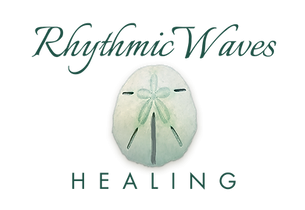Understanding How Loss Can Lead to Struggles with Addiction
Grief is something we all go through at some point in life. It comes after we lose someone or something important to us — like a loved one, a job, a relationship, or even a sense of purpose. Grief brings deep emotional pain, and it can show up in many different ways. Some people cry often, while others feel numb or angry. But for some, grief leads to something more dangerous: addiction.
Addiction is more than just using a substance or habit too much. It's a way of trying to escape pain, stress, or sadness. And when someone is grieving, those emotions can feel so big and heavy that they look for anything to make them stop — even just for a little while. Why Grief Can Lead to Addiction
When we’re grieving, our minds and bodies are under a lot of stress. Our brains may produce fewer “feel good” chemicals like dopamine and serotonin. This can make us feel tired, empty, or hopeless. Substances like alcohol or drugs — or even behaviors like gambling, overeating, or scrolling endlessly on social media — can give a quick burst of relief. But it doesn't last. The person is doing their best to regulate their nervous system.
At first, someone may use a substance just to “take the edge off” or to sleep better. But over time, this can turn into a regular habit. That habit can become a need. Before long, it can turn into addiction — not because someone is weak or flawed, but because they are in pain and looking for a way to cope.
The Cycle of Pain
Addiction and grief can create a painful cycle. A person uses something to feel better, but then may feel shame, guilt, or regret afterward. That makes the grief even harder to bear. This leads to more use, and the cycle repeats. The original pain from the loss is never truly dealt with — it just gets buried under more layers of hurt.
Breaking the Connection
The good news is that healing is possible. Understanding that addiction and grief are connected is the first step. Grief is a natural, human response. It doesn’t need to be “fixed,” but it does need to be felt. Talking to a health care facilitator, joining a support group, or simply opening up to a trusted friend can help someone process grief in a healthier way, although caution should be taken with who is trusted. Often times friends will minimize addictions because they are uncomfortable with it or simply don’t understand the pull and make the person feel inadequate because they can’t stop.
Addiction recovery also often includes looking at the grief underneath. By dealing with the loss — whether it's a person, a dream, or a sense of identity — people can begin to heal both emotionally and physically.
You’re Not Alone
If you or someone you care about is struggling with addiction after a loss, know this: you are not alone. Many people have been where you are, and there is help out there. Healing takes time, but it is possible. I work online and in person. Feel free to connect with a free fifteen minute consultation.

